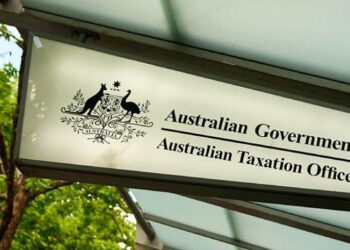In the AIOFP’s proposed market structure, executive director Peter Johnston explained the association has taken the view that there needs to be a balance between what is ideal and what is likely to create a “credible and workable outcome for all participants”.
“It is very unlikely there will ever be a perfectly structured marketplace with total separation of product and advice where consumers pay advisers to select the best products/services and product manufacturers do not have internal advice functions,” Mr Johnston said.
“As a consequence, there will always be a hybrid approach to financial advice due to the growth and dominance of Industry Superannuation Funds (ISF) over the decades.
“Based on poor consumer outcomes over many years and the damming royal commission findings, the banks should not be permitted to enter the advice process on any level ever again.”
He added that the industry also requires full co-operation from ASIC and AFCA, which he said should be “transparent and consistent with their views and interpretation of the law to avoid market confusion and anti-consumer outcomes”.
Mr Johnston said the AIOFP is in line with Financial Services Minister Stephen Jones’s apparent position that including superannuation funds in the advice process is preferable to allowing banks back into the fold.
“Banks are driven by shareholder priority outcomes and super funds have a fiduciary duty to their members, not perfect in a vertically integrated context but workable considering the ideal industry model is not achievable at this point in time,” he said.
In order to achieve the AIOFP’s proposed market structure, Mr Johnston said advice providers should fall into either the relevant advice provider, non-relevant provider, or risk insurance advice provider category.
“The term ‘advice’ should be excluded from the non-relevant provider vocabulary to avoid confusion for consumers, the QAR report supports this position,” he said.
“The provision of factual information by super fund trained staff is not detrimental to members, in fact it will significantly reduce the cost of providing advice outcomes ultimately benefiting member account balances with lower overall administration costs.
“This process is also not a threat to services provided by most external relevant advice providers who cannot service this end of the market due to prohibitive compliance costs.”
He added the current trend of ISFs outsourcing financial advice to external relevant advice providers should continue as it produces significant cost savings to the fund/members by not employing advisers, reduces AFSL risk to management and provides a pipeline of clients for advisers.
The proposal also recommends the professional year obligations need to be updated as banks and super funds no longer recruit young advisers and most advice practices lack the resources to fund these professional years.
In terms of other types of providers, the proposal also touches on the role of accountants, stockbrokers, and robo-advice.
“Accountants should become a non-relevant provider to offer SMSF structures to consumers but must become a relevant provider if financial advice is involved,” Mr Johnston said.
“Stockbrokers should only be subjected to an amended FASEA exam focusing on industry relevant content and the ‘nasty’ ambiguous aspects removed.
“Credible offshore research strongly suggests the use of digital/robo-advice with consumers is a global failure, it’s only success is with product related decision making. We do not see it playing a pivotal advice role in the short to medium term with the nation’s current demographics unless new innovations evolve.”
On the compliance side, the AIOFP said the current regime is “not remotely fit for purpose, expensive and grossly inappropriate for consumers and the advice process in general”, with Mr Johnston adding the previous federal government used compliance to “remove advisers from the industry but neglected the consumer cost outcomes and ramifications”.
The AIOFP proposal would see streamlined advice documents and the removal of annual opt-in, annual fee consent forms and the annual fee disclosure statements.
“Nowhere in the world can we find evidence of any government that has been as invasive, nefarious and fanatical as the last federal government and its agenda against the advice community,” Mr Johnston said.
“Not only has this behaviour caused widespread mental health decay and suicides within the advice community, it has been diabolical for consumers, the one stakeholder they should have been protecting.”


